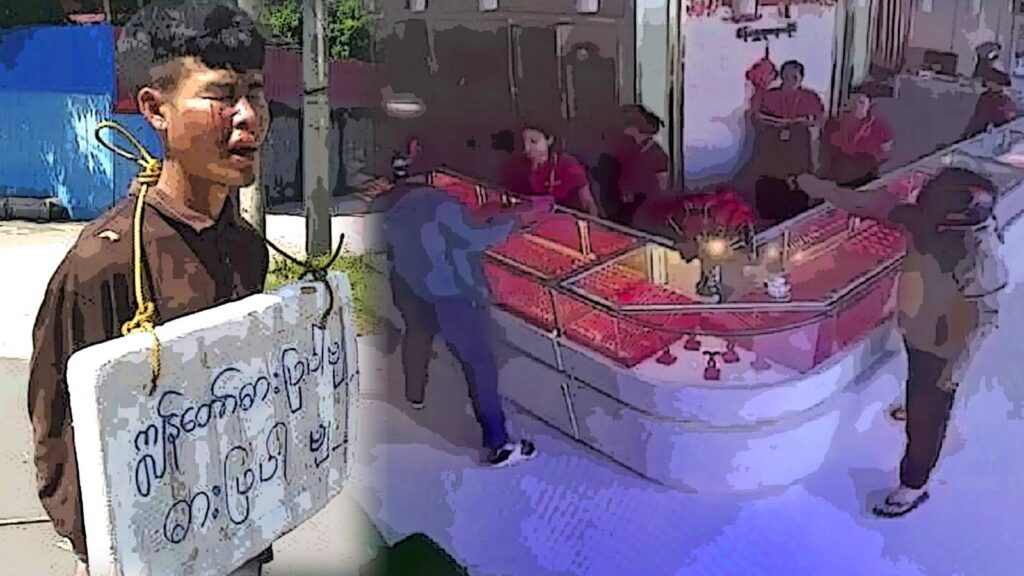Myanmar Spring Chronicle – View from September 8
(Moemaka), September 9, 2025
Daily kidnappings/forced conscription and rising crime in junta-controlled cities
Reading the news each day, the items that dominate are: young men disappearing; workers detained while commuting and told they’ll be sent to military service unless they pay—demands ranging from millions to tens of millions of kyat; murders committed to steal belongings; armed robberies of gold and mobile-phone shops; and street muggings at knifepoint.
On September 8, for example, in Myitkyina about six youths mugged a woman at knifepoint, taking her phone and cash. Luckily, when she screamed, residents caught at least four of them. The same day, armed men robbed a gold shop in Myitkyina’s Aung Nan ward.
Another report—by DVB—from Yangon describes young men of conscription age being seized and extorted; if they can’t pay what’s demanded, they are handed over to the junta’s draft-collection teams after money changes hands.
These abduction/extortion squads are not clearly identified, but since they hand detainees to draft units, they are widely assumed to be linked to the military. The spread of such incidents shows that, despite the presence of a “government,” there is no rule of law protecting the public.
More than a year after the mandatory military service law took effect, conscription is no longer conducted by lottery or by rotational call-ups. Instead, arrests and ransom-style extortion have become the norm. Some parents with little income, desperate to keep sons out of the army, have pawned or sold homes and property to raise the money. Despite the new law, the practice of seizing people and demanding multi-million-kyat payments has not disappeared; it continues. As conscription has become the backbone of the junta’s war effort, the regime shows no interest in upholding other legal norms of governance.
Before the coup—when there was no open war—news items like these might have appeared only occasionally over months. Now such reports come daily. Families post missing-person notices on social media every day; some of those missing turn out to have been extorted and released, some are killed, and many others vanish without a trace.
Although crime is rampant, the junta that controls the cities does nothing—in part because perpetrators often include its own soldiers and the lowest-level administrators (ward/village heads, “hundred-household” heads) and informers embedded in its apparatus.
Police and SROF militia units are used mainly to gather intelligence on political opponents and armed resisters; they are not used to tackle ordinary crime. Investigations and arrests focus overwhelmingly on those with political ties to the resistance.
Another driver of crime is the repeated amnesties: four or five times a year, prisons release inmates convicted of non-political crimes, which contributes to rising offenses.
As a result, violent robberies and killings occur not only in active war zones but also daily in the cities. Ordinary people are thinking they must protect themselves, yet they are not allowed to form neighborhood-based self-protection committees.
Amid severe economic hardship and exhaustion, the public now endures both an upsurge in crime and pervasive insecurity. The junta’s message is that these effects stem from the armed resistance. In the public’s view, however, these outcomes are the consequence of the military coup itself.

